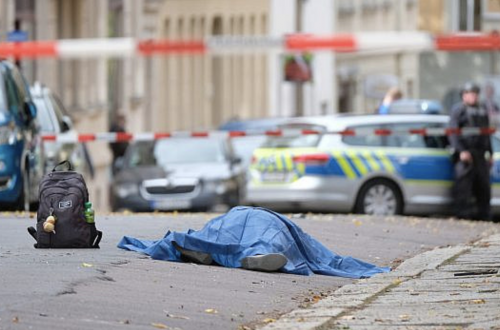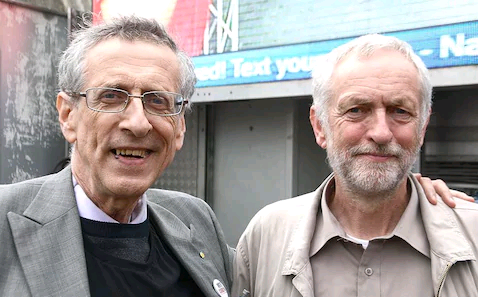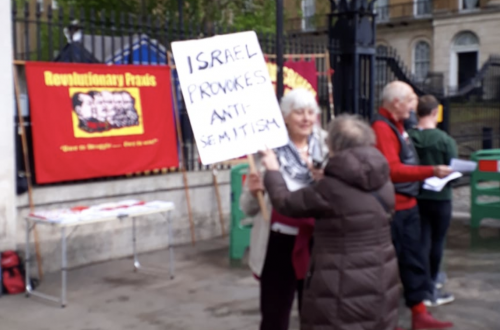This is a cross post by Lyn Julius from The Times of Israel
Last month, at the height of the Gaza war, French Jews in a Paris synagogue were shocked to find themselves the target of a near-pogrom by an enraged mob. And not only in France. Attacks on Jews in the UK went up 500 percent. Germany, Italy and Australia saw a worrying rise in anti-Jewish incidents too.
Jews in the West have been dismayed and traumatised: campaigns against antisemitism have been launched, demonstrations called.Leaders are hastening to distance diaspora Jewry from Israel in the hope that Jews will not be targeted for violence.
In fact ‘collective punishment’ of Jews is nothing new to Jews who originate from Arab and Muslim countries.
Sixty years ago last month a massacre occurred that actually had nothing to do with the Arab-Israeli conflict.
The massacre of Petit Jean (now known as Sidi Kacem) may surprise those who extol Morocco as a model of Muslim-Jewish coexistence.
It took place against a background of unrest and violence as Moroccan nationalists struggled for independence against French colonial rule.
Petit Jean was a commercial hub 20 kilometres from Meknes. Jewish shopkeepers prepared to shut their stores to comply with a nationalist boycott. But the French authorities told them to remain open and guaranteed them ‘total protection’. On 3 August 1954, the Jews paid dearly for a total lie.
According to Robert Assaraf, author of Une certaine histoire des juifs du Maroc (p 579), at around 6.30 pm a horde of 1,000 excited Arabs converged on the old town and fixed a poster of the exiled sultan, the future Mohammed V, on the front of a Jewish shop. The police commissioner climbed a ladder to remove it. The mob threw stones at him. He got away. For no apparent reason, the mob then took out their frustrations on the Jews. They clubbed six Jewish merchants to death with iron bars.
The manner of their death was particularly gruesome: Samuel Boussidan, a father of 11, had his chest split open. The murderers then indulged in unspeakable atrocities. They hurled him on to a heap of sacks and set fire to him. Setting ablaze a truck belonging to Chaloum Elfassy, the baying crowd headed for Elfassy’s warehouse, attacking him with bricks and killing his son, 22, a young married father of one. Other rioters attacked Elie Toledano, the head of a large family, and killed him and his son David. A sixth Jew, Abraham Amar, suffered the same fate.
The mob made a bonfire of the bodies and set fire to valuable stock, while their women ululated their joy. Witnesses saw the rioters distribute banknotes stolen from the unfortunate victims.
It took four hours for the forces of law and order to come. The police, who had been protecting the European quarter, began to fire on the rioters. They fled in all directions: 300 were arrested.
Assaraf points out that the rioters spared the shops belonging to Muslims, and even more incredibly, the property of French and foreign companies. “At the SCAM warehouse, the mob enquired who was the owner,” Assaraf recounts.” When they learned it was a French company, they were careful to leave it alone, going off to plunder more Jewish assets.”
The corpses, charred beyond recognition, were handed over to the traumatised Meknes Jewish community. On the seventh day of mourning, the community leadership publicised an open letter in Hebrew and Judeo-Arabic to be read out in all synagogues: “Fathers and sons were sacrificed on the same day. Their murderers, full of hate, savage and cruel, made them suffer the cruellest torments. The dead are martyrs for the people of Israel.” The letter ends with a plea for Divine vengeance.
Was the riot premeditated or spontaneous? No one knows, but Jews had been singled out for an unusually sadistic death purely for being Jews.
When the last French soldier left Moroccan soil, what fate would lie in store for the Jewish community?
Days later, the Jewish press reported that 25,000 Jews in Morocco had registered with the Jewish Agency for emigration to Israel.
A number of well-to-do Jews in Morocco had received threatening letters from Arab terrorists, ordering these Jews to leave the country within three months, a recent arrival in Israel, David Rubino said.
“The terror is not aimed specifically against the Jews,” he declared. “The terror has its own political motivation. But Jews are suffering, and losing their lives. Most Moroccan Jews want to leave the country, want to emigrate to Israel. This includes many who, up to very recently, had no particular desire to go to Israel. These have changed their minds overnight, because of the pogroms. “
The JTA reported: “Most Moroccan Jews, rich and poor alike, want to leave for Israel, and “the sooner they are transferred, the better, ” the refugees declared. They told how, when they were passing through the streets of Casablanca on their way to board their ship, Arabs shouted: “We’ll start war against the Jews within a week. “
While it must be stressed that many Muslims also died during this period of turmoil, Jews found themselves singled out because they were an easy target. The lesson of Petit Jean is that no pretext excuses mass violence against the innocent. And there’s another lesson all defenceless minorities learn the hard way – whether Jews, Assyrian Christians or Yazidis : don’t depend on others to defend you.


